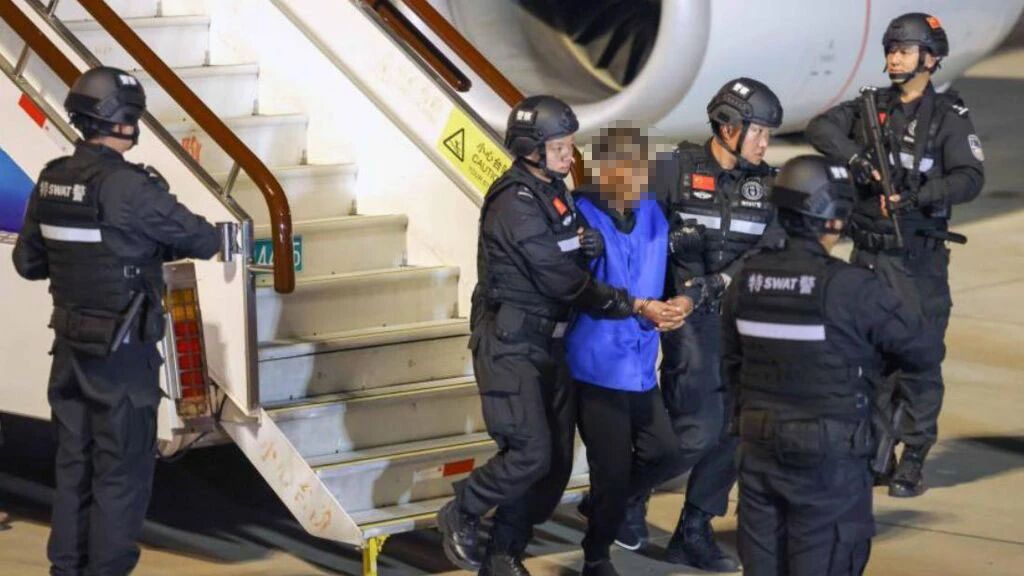
A Chinese court has handed down the death penalty to five senior leaders of a notorious Myanmar mafia group as part of Beijing’s intensified efforts to dismantle transnational scam operations in Southeast Asia.
According to a state media report published on the court’s official website, 21 members and associates of the Bai crime family—along with their associates—were found guilty of various crimes, including fraud, murder, assault, and other offenses.
The Bai family was among a small group of powerful criminal syndicates that emerged in the 2000s, turning the remote, impoverished town of Laukkaing (also known as Laukkai) into a thriving center for casinos and illegal entertainment.
In recent years, the group shifted its focus to large-scale cyber scams, trapping thousands of trafficked workers—many of them Chinese—under brutal conditions and forcing them to carry out fraudulent schemes. These operations generated illicit revenues exceeding 29 billion Chinese yuan (approximately $4.1 billion or £3.1 billion).
The crackdown also revealed that the syndicate’s activities resulted in the deaths of six Chinese nationals, one suicide, and numerous injuries.
The Shenzhen Intermediate People’s Courtsentenced Bai Suocheng(a Burmese national and the family’s patriarch), his son Bai Yingcang, and three other key figures—Yang Liqiang, Hu Xiaojiang, and Chen Guangyi—to death. Two other Bai family members received suspended death sentences, while five were given life imprisonment. The remaining nine defendants were sentenced to prison terms ranging from three to 20 years.
Authorities revealed that the Bais, who maintained their own private militia, operated 41 compoundsdedicated to cyber scams and gambling. Their criminal empire caused immense harm, leading to China’s firm response.
The severe penalties reflect Beijing’s broader campaign to eliminate scam networks in Southeast Asiaand deliver a strong warning to other criminal organizations.
In September, another Chinese court sentenced 11 members of the Ming family—another dominant Laukkaing clan—to death. These crime families rose to prominence in the 2000s with the backing of Myanmar’s military leader, Min Aung Hlaing, who sought to consolidate power in Laukkaing after overthrowing the region’s previous warlord.
Among the criminal clans, the Bais were considered “the most powerful”, as Bai Yingcang himself admitted in a Chinese state media documentaryaired in July.
A former worker at one of their scam centers described the horrific abuse victims endured, including beatings, having their fingernails ripped out with pliers, and fingers severed with knives.
Bai Yingcang, who was among those sentenced to death this week, was also separately convicted of plotting to traffic and produce 11 tons of methamphetamine, according to state media.
The downfall of these crime families began in 2023, when shifting political dynamics led to a Chinese police crackdown. Arrest warrants were issued for the most prominent members, and in early 2024, Bai Suocheng—one of the original warlords—was extradited to China from Myanmar.
A Chinese investigator, speaking in the July documentary, explained the government’s relentless pursuit:
“Why is the Chinese government making such an effort to target these four families? It’s to send a clear message: No matter who you are or where you operate, if you commit such atrocities against the Chinese people, you will face justice.”






